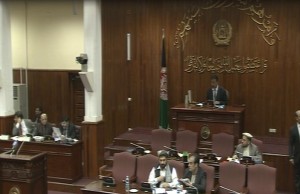Latest News
MPs reject 10% tax on mobile subscribers

The lower house has disapproved president Ghani’s decree on enforcing ten percent taxes on telecommunication customers and said it is against the Afghan constitution.
Article number seventy-nine of the Afghan constitution says,” During the recess of the House of Representatives, the Government shall, in case of an immediate need, issue legislative decrees, except in matters related to budget and financial affairs.”
Based on President Ghani’s decree telecommunication customers are paying 10% of taxation on every top up since nearly one month.
The following taxation is automatically deducted from the customer’s credits and being transferred to government treasury.
Afghan parliament on Wednesday unanimously rejected the decree to impose the 10% tax on mobile with eight votes in favor of taxation.
Qais Hassan, MP and chairman of parliament’s Telecommunication and Transportation Commission said,” the President does not have the authority to issue decree in matters related to budget and financial affairs, taxes are being collected since two months and we don’t know if it has been transferred to the government account or it is still with the companies”.
Afghan constitution reads,” Legislative decrees, after endorsement by the President, shall acquire the force of law. Legislative decrees shall be presented to the National Assembly within thirty days of convening its first session, and if rejected by the National Assembly, they become void.”
Musa Nasrat, MP and a member of the Telecommunication and Transportation Commission added,” legislative decree is not a law and it violates the Afghan constitution, the Commission has decided to draft a law for transparent execution of telecommunication taxes”.
Lawmakers accused President Ghani for violating the Afghan constitution with legislative decrees in nine cases.
“The President has issued nine decrees which are against the constitution,” MP Sediq Ahmad Osmani criticized.
This comes as officials in the Afghan Ministry of Finance recently announced they have received nearly 83 million Afghanis in about ten days from mobile taxes.
Reported by: Abdul Aziz Karimi

Latest News
EU Parliament condemns governments that uphold IEA by normalizing relations

The European Union Parliament on Thursday in an adopted resolution on the human rights situation in Afghanistan condemned the countries that uphold the Islamic Emirate by normalizing relations.
EU Parliament also criticized the new law of Promotion of Virtue and Prevention of Vice announced recently by the Islamic Emirate.
EU has also demanded new sanctions against the IEA.
The resolution stated: “MEPs want the EU to support the recognition of gender apartheid as a crime against humanity and call for Afghanistan’s de facto authorities to be held accountable, through the International Criminal Court (ICC) investigation and the establishment of a UN Independent Investigative Mechanism.”
The resolution, however, urges the EU and donor states to increase humanitarian aid and funding to support basic needs, livelihoods and Afghan civil society.
The resolution was adopted by 565 votes in favor, 8 against and 43 abstentions.
In the meantime, IEA’s spokesman Zabihullah Mujahid has said that the imposition of sanctions and pressure by some countries on the caretaker government has failed as in the past and the Afghan government wants positive interaction with all countries of the world.
“The European Union is experiencing the failed ways that they have already taken this path and have not gotten results,” said Mujahid.
“The Islamic Emirate of Afghanistan considers positive interaction as the only solution to all problems,” he added.
Earlier, the UN Security Council also expressed serious concern about the implementation of IEA's Promotion of Virtue and Prevention of Vice law in a meeting regarding the situation in Afghanistan.
IEA, however, regarding the criticisms of the implementation of vice and virtue said that this law was compiled based on Islamic Sharia and considered opposing it as a contradiction with Islamic Sharia.
Latest News
IEA tells religious scholars to avoid talks on controversial topics
The statement said that “those scholars who incite disputes, promote superstitions, and use inappropriate words in the media” should not be invited to events.

The Islamic Emirate of Afghanistan (IEA) on Friday called on scholars to avoid discussing controversial topics that cause agitation among the ordinary people.
A statement issued by the office of the Prime Minister states that scholars should avoid discussing “rare” issues that could cause misguidance among some and that ordinary people cannot understand.
The statement added that "some of the strange issues whose occurrence is not common should not be expressed in mosques and public gatherings, because the enemies of Islam make fun of such issues."
IEA also called on preachers and teachers to avoid publishing "specialized, complex and detailed academic and sufi topics in the media" because they are "special" and for "special audiences".
The statement said that "those scholars who incite disputes, promote superstitions, and use inappropriate words in the media" should not be invited to events.
“Islamic Emirate does not allow anyone to create discord, division, strife, and misguidance and it will take serious actions to prevent them,” the statement said.
Latest News
Pakistani minister calls for increased foreign aid for Afghan refugees
He emphasized the need for optimal utilization of resources to effectively achieve the objectives of the Commissionorate of Afghan Refugees.
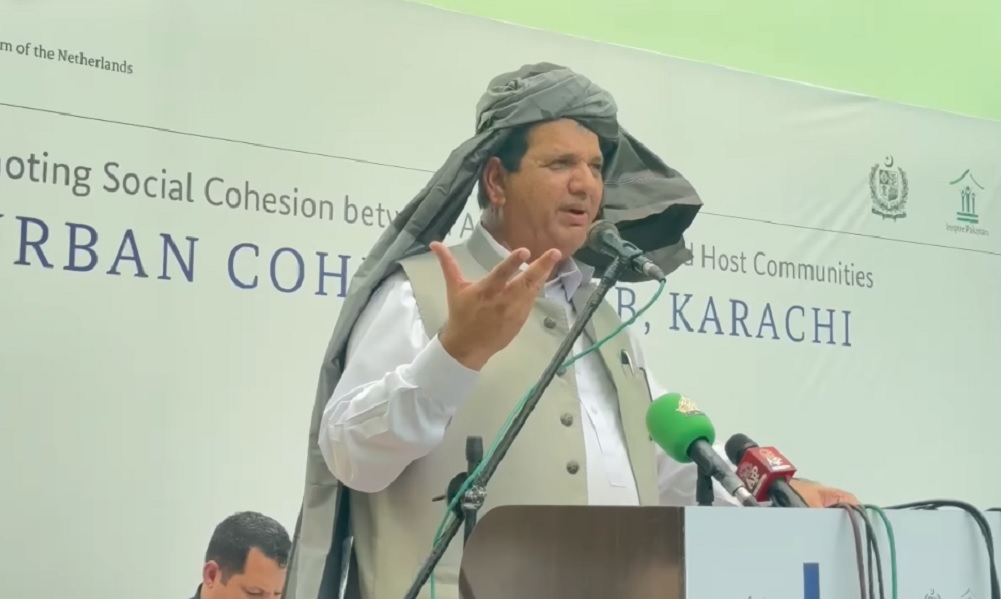
Pakistan's Minister for States and Frontier Regions, Kashmir Affairs, and Gilgit Baltistan, Amir Muqam, has called on the international community to increase funding and support for Afghan refugees.
Speaking at a meeting held at the office of the Commissioner of Afghan Refugees in Karachi, Muqam said that Afghan refugees' needs are growing and require substantial resources.
He emphasized the need for optimal utilization of resources to effectively achieve the objectives of the Commissionorate of Afghan Refugees.
“We look forward to continuing our collaboration to ensure the safety and dignity of refugees within our borders,” Muqam stated.
Pakistan hosts 1.45 million registered Afghan refugees.
-

 Sport5 days ago
Sport5 days agoAll you need to know about FIFA Futsal World Cup Rules
-
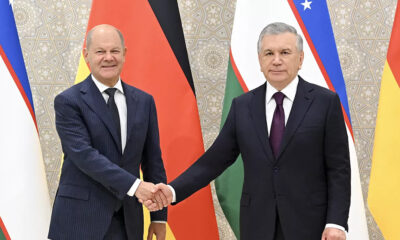
 Latest News5 days ago
Latest News5 days agoGermany signs agreement on migration with Uzbekistan
-

 World5 days ago
World5 days agoHouthi missile reaches central Israel for first time, no injuries reported
-
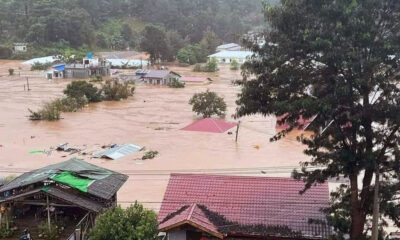
 Climate Change5 days ago
Climate Change5 days agoMyanmar’s flooding death toll rises to 113, state media reports
-
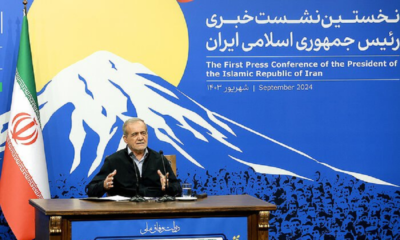
 Latest News4 days ago
Latest News4 days agoIran repatriates illegal foreigners with respect, Pezeshkian says
-

 Regional4 days ago
Regional4 days agoIran’s president says Tehran did not transfer weapons to Russia since he took office
-

 Sport4 days ago
Sport4 days agoIran and Portugal dazzle in their FIFA Futsal World Cup openers
-
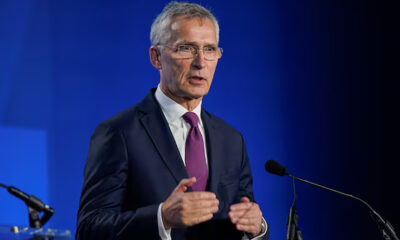
 World4 days ago
World4 days agoNATO’s Stoltenberg says each country must decide if Ukraine can use its long-range missiles on Russia

